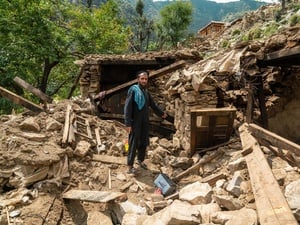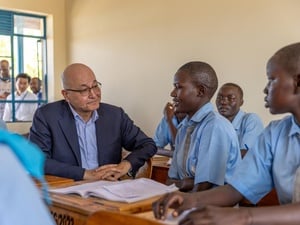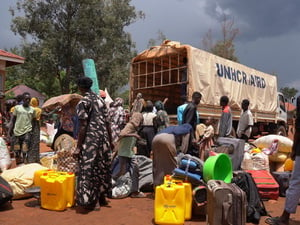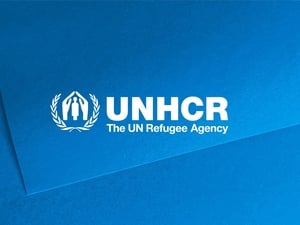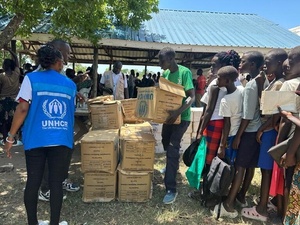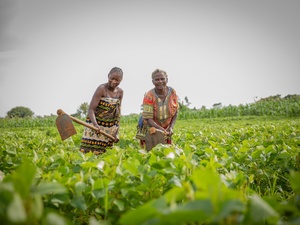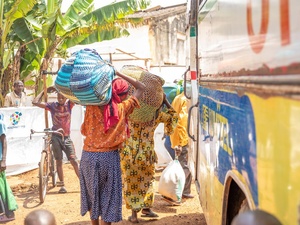DRC: Team visits Uganda border areas
DRC: Team visits Uganda border areas
UNHCR has sent a team to the border region of south-western Uganda to assess the situation following reports of an influx of refugees fleeing turmoil in neighbouring Congo's north-eastern Ituri district. The ten-member team, comprising UNHCR as well as government officials and WFP officials, has been able to visit four sites over the past two days and found the presence of large numbers of refugees camping in fishing villages on the shores of Lake Albert. First indications, however, are that the situation is not as alarming as initial reports had suggested.
The team used boats to reach some of the flooded villages in the southern part of Lake Albert that marks the border between Uganda and the Democratic Republic of the Congo. They were able to confirm the presence of refugees in at least four locations. Small groups of refugees were seen camping under makeshift canopies or living in the open. Sanitary conditions generally seemed bad. One case of cholera was reportedly diagnosed at a village called Ntoroko.
Most refugees said they fled because of a seriously deteriorating situation in and around Ituri's capital, Bunia. Some said they followed the retreating UPDF (Ugandan Patriotic Defence Forces) soldiers to avoid being attacked. Refugees said they had walked for three days before reaching the border. One boy said his two brothers were killed in the violent clashes between the Hema and Lendu ethnic communities amid reports of massacres.
Local villagers clearly seem to be overwhelmed by the presence of refugees. The Ugandan government instructed humanitarian agencies that assistance should be given to people who need it at a settlement called Kyaka II, in the Kongongo District. UNHCR is looking at ways of transferring refugees who need help to the designated site.
The team will proceed to the Nebbi district over the weekend to continue assessing the presence of refugees around the northern parts of Lake Albert.


